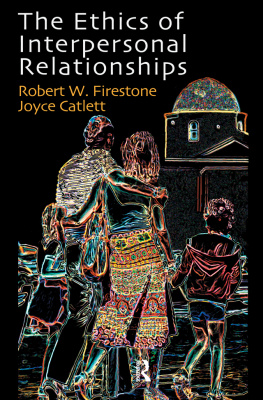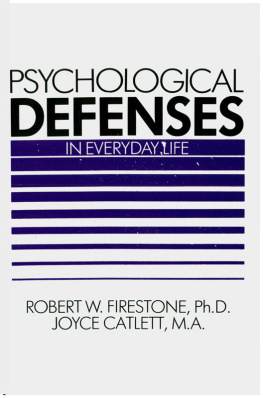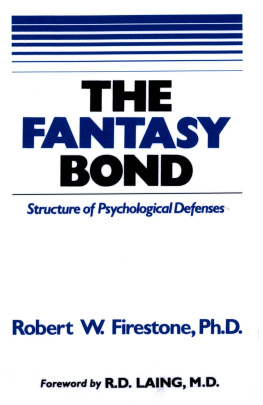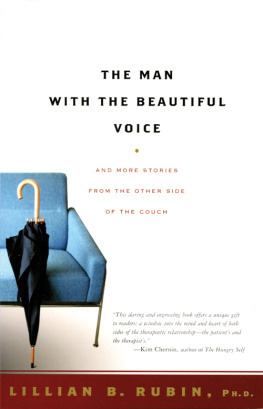I want to express my appreciation to Tamsen Firestone, Jo Barrington, and Susan Short, for their inspirational efforts in editing these stories. I am especially grateful to Joyce Catlett and to Jina Carvalho, communications director of the Glendon Association, who worked closely with Claire Gerus, literary agent, to place this book with our publisher. My appreciation goes to Steven L. Mitchell, editor-in-chief at Prometheus Books, for his encouragement and support of my work, to Jade Zora Scibilia, senior editor, for her insightful suggestions regarding editorial changes, and to Hanna Etu, editorial assistant, for her attention to important details of this project.
Thanks also to the Glendon Association staff, including my daughter Nina Firestone, managing director, and to Megan Fischer, Maureen Sullivan, and Geoff Parr, documentary filmmaker. I want to convey my appreciation to my colleague and daughter, Lisa Firestone, PhD, for her input and ideas in relation to this book, and to my other daughters, Carolyn and Lena Firestone, for their efforts in bringing my work to a wider audience.
I want to express my gratitude to the individuals whose life experiences and personal truths are revealed in this book. I thank them for sharing the insights they gained as they challenged the darker aspects of themselves and gradually grew accustomed to a new and freer way of being and living.
The names, places, and other identifying facts contained herein have been fictionalized, and no similarity to any persons, living or dead, is intended. However, in Therapist or Tyrant? and Afterword: R. D. Laing and the Divided Self, John N. Rosen's and R. D. Laing's real names were specifically retained, but the names of any patients were not.
It was the summer of 1989, and my friends and I were vacationing in Europe. We had just crossed the Atlantic Ocean on our seventy-five-foot motor-sailor, Tamara, via Bermuda and the Azores Islands. The sail was exhilarating, and we made our first landfall in Gibraltar. From there, we cruised slowly along the south of Spain; visited the Spanish islands of Ibiza, Minorca, and Mallorca; encountered a storm in the Golfo de Len; and eventually landed in Monaco.
After a few days spent enjoying the gambling, swimming, hiking, and outdoor movie theater in this beautiful city, we rented a couple of vans and left the port for a land trip. We were anxious to explore the surrounding countryside. Our first destination was to be Villa d'Este, Italy, on Lake Como where we planned to spend a few days. At noon, we stopped at the Riva boat factory at Sarnico on Lago d'Iseo for a look at their new fifty-foot powerboat. After the tour, the guide told us that the craft would be launched one week later. We couldn't resist the opportunity for a demo ride on that new boat, so we rearranged our itinerary to arrive back at the factory in time for the launching, which meant we would end, rather than start, the trip on Lake Como. That's when everything changed.
We canceled our reservations at Villa d'Este and made Innsbruck, Austria, our new destination. But when we arrived there, it was pouring rain. In the grey afternoon light, I pictured staying in the dismal city and rejected the idea. I suggested that we continue driving out into the scenic Austrian countryside in the hopes that the weather would clear up. I had a particular spot in mind, a lovely gasthaus where I had once stayed. I was anxious to show it to my second wife, Tam; she had never been there, and I knew she would love the cozy atmosphere. We managed to find the place, got rooms for the night, and had just finished a hearty meal when Joyce Catlett, my close friend and co-author, ran up to the table looking excited.
She said, You're not going to believe this, but R. D. Laing lives about a mile from here! At first, I didn't know what she was talking about. Then she explained that she had been placing an international phone call and the operator had asked what city she was calling from. When the woman at the front desk told her Going, Austria, Joyce recognized the name from a letter she had sent Laing. Immediately, she got his phone number from her office and asked if I wanted to call him. Can you believe it? she added, You always wanted to meet him; well, here's your chance!
Ronnie Laing was a psychiatrist who became famous in the sixties for his unconventional views about family life and society. He became a hero to the counterculture and was admired for his poetry, which he referred to as knots. In the field, he was well-respected yet controversial, and even demonized by some. There were all kinds of contradictory stories swirling around about him. They depicted him as either a really brilliant, compassionate psychiatrist or some kind of raving, drunken lunatic.
As distant colleagues, we were familiar with each other's work and had admired one another for years, but we had never met. We had corresponded and exchanged a few long telephone calls, and Ronnie had written a foreword to my 1985 book, The Fantasy Bond. We had even extended invitations to each other from various locations around the world, but our schedules had never coincided.
When she heard the news from Joyce, Tam was so thrilled that she could barely contain her enthusiasm. She considered it an act of fate. For her, it was a dream come true. Ever since she had visited Ronnie with Joyce in London several years before, she believed that something very special would happen if he and I ever got together. She could not get over the amazing concatenation of events that had brought us together.
I was not so much surprised as concerned. The reason for my worry pertained to troublesome aspects of Laing's mixed reputation, which were verified by certain circumstances that had occurred during Tam's previous visit with him.
I had arranged to meet with Laing myself in London and was going to show him one of our documentary films detailing a therapy technique I had developed called voice therapy. Joyce had made the necessary arrangements, but at the last minute I wasn't available due to a scheduling problem. Joyce and I decided that she should go in my place, and Tam said that she wanted to go along. Then, since my friend and former professor, Stuart Boyd, was also interested in meeting Laing, we set it up for him and his wife, Nan, to join the group. Because both men were Scottish and close in age, and as they had both attended Edinburgh University and studied psychology, and since each was remarkably intelligent and witty, Tam and I thought that they would have a lot in common.
When the different parties arrived in London, they didn't know what to expect, but they were eager to see what would unfold. Tam tells the story of that first meeting:
We met Laing in the afternoon at the home of one of his colleagues. Early on, the man informed us, If Ronnie likes you, you will be invited to join him for dinner. But if he doesn't, you won't. We said, Okay, that's fine. Then we were introduced to Ronnie, who was very warm and congenial.
When we began showing the documentary, Ronnie said, Wait, stop the film, and he went out of the room and came back with his daughter, Natasha, because he wanted her to see it. As he watched the film, it was obvious that he was engaged and was having a positive reaction. Afterward, Laing told me that he liked the way Bob was in it, that he could see that Bob was attuned to people and that he was a sensitive therapist. When we were about to leave, he invited us to come back in the evening and join him for dinner.














